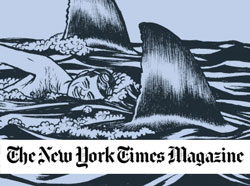 In late October a thought-provoking article “Don’t Blink! The Hazards of Confidence” from the New York Times Magazine was making the rounds of desks and cubicles here in Zurich. In a nutshell, it warned against believing in overconfident experts or even in your own certainty. The author labeled it the “illusion of validity.”
In late October a thought-provoking article “Don’t Blink! The Hazards of Confidence” from the New York Times Magazine was making the rounds of desks and cubicles here in Zurich. In a nutshell, it warned against believing in overconfident experts or even in your own certainty. The author labeled it the “illusion of validity.”
Throughout the article, the author builds his case for doubting that the world is actually as regular and predictable as we often think it is. He cautions us to be aware of the risks of fast thinking, which is not prone to doubt. The key paragraph in the article, in my opinion, also applies to decision-making as leaders:
The confidence we experience as we make a judgment is not a reasoned evaluation of the probability that it is right. Confidence is a feeling, one determined mostly by the coherence of the story and by the ease with which it comes to mind, even when the evidence for the story is sparse and unreliable. The bias toward coherence favors overconfidence. An individual who expresses high confidence probably has a good story, which may or may not be true.
Are you as a thought leader overconfident in your evaluations? Do you have an “exaggerated expectation of consistency” of your results based on your past experiences? How can you best avoid these common errors of logic? Ask, assess, then act. Contact us – we’re here to help.
